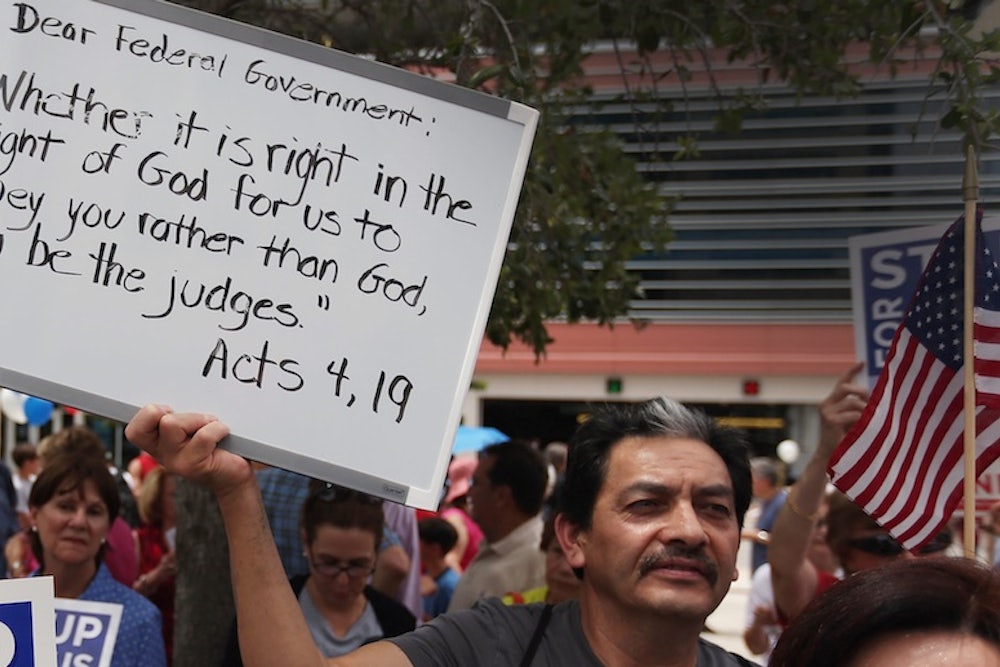The push for “religious freedom” laws, which permit business owners to shun LGBT customers, suffered a major setback last month when a proposal failed to get the governor’s signature in Arizona. But the campaign could make progress in other states—and maybe as soon as Wednesday night, when the Mississippi House will hit its deadline to vote on a measure that already passed the state Senate. Similar measures are under consideration in roughly ten other states, including Hawaii and Oklahoma.
As it happens, individuals and businesses in most of these states already have pretty broad latitude to refuse service based on claims of religious freedom. The U.S. Constitution, as currently interpreted by the courts, doesn’t actually make such discrimination illegal. And while 21 states plus the District of Columbia have enacted anti-discrimination laws protecting the LGBT community, most of the states considering religious freedom measures now are not among them. That’s not so surprising. The states that have passed laws forbidding anti-gay discrimination tend to be more liberal—Massachusetts, Minnesota, California, and so on. Those considering religious freedom laws lean conservative.
So why bother with the religious freedom laws? Douglas NeJaime, a professor at the University of California, Irvine, School of Law and an expert in constitutional and sexuality law, says the effort is “pre-emptive.” Attitudes have been changing steadily and quickly, in favor of more tolerance of the LGBT community. Last August, polling from the think tank Third Way showed that 69 percent of people thought it was wrong for businesses to refuse service to gay people. In fact, 56 percent of those polled believed discrimination against gays was already illegal in their home states—even though almost one-third of those respondents lived in states where the LGBT community had no such protections. “Even where there is no anti-discrimination law, we seem to be proceeding under the assumption that there is an obligation, and there should be,” NeJaime says.
But enactment of these laws would make it difficult for states to outlaw discrimination, even as public opinion trends toward acceptance. That’s because the new religious freedom measures are specifically designed to supersede the kinds of laws that exist in more liberal states—and that conservatives fear might come to theirs. As Margo Schlanger, an expert on civil rights law at the University of Michigan Law School, explains, “The entire purpose of a [religious freedom law] is to provide exemptions” from government regulations that infringe on a group of people's religious beliefs—a category anti-discrimination laws fit.
Someday, public attitudes might render religious freedom laws more or less moot, because individuals and shop-owners who refuse LGBT clients will generate bad feeling and bad publicity—the kind that turns away customers and destroys businesses. But even if that progress proves inexorable, this recent crop of bills could slow it down.
